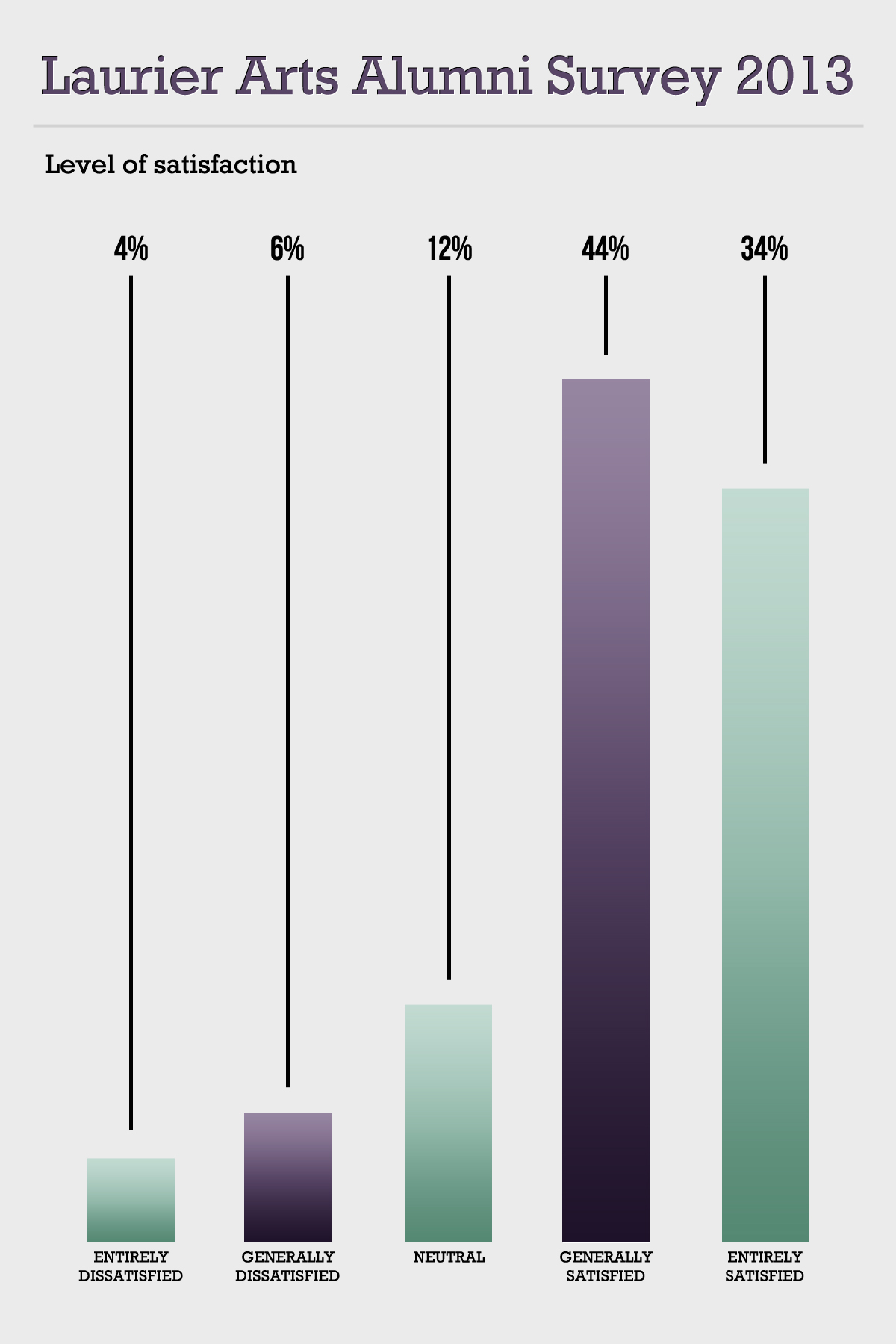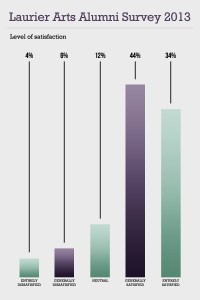Examining arts degree satisfaction


In June, the faculty of arts at Wilfrid Laurier University sent out a survey to 10,810 arts alumni to gather feedback on their experience both while at Laurier and following graduation. This action was a suggestion made by the arts external advisory committee who thought it would provide the faculty of arts with “useful information.”
1,169 responses were received which, according to Michael Carroll, the dean of the faculty of arts, is considered a good response rate.
“The goal was just to gather information and get feedback,” Carroll explained. “We were hoping in fact that people would look back favourably on their arts education and give us some sense of why they looked back favourably. And, indeed, that is what has come to pass.”
The result that the faculty is emphasizing is that 78 per cent of respondents were either generally satisfied or extremely satisfied with their experience in the faculty of arts.
“This was the chance for all those disgruntled arts students out there who are serving coffee at Starbucks to tell us what they thought,” Carroll said. “But in fact, 78 per cent were satisfied with their experience in faculty of arts, so that’s gratifying.”
This leaves four per cent of respondents who were extremely dissatisfied with their experience and six per cent who were generally dissatisfied. 12 per cent were neutral.
Juan Peckitt graduated with a bachelor of arts degree in 2012, majoring in communication studies and minoring in film studies. He has been working at an editing studio for about a year.
Peckitt believes that the 78 per cent satisfaction rate reflects his own experience in the faculty of arts. However, he said his satisfaction comes more from his involvement beyond his program, not from his actual degree. For Pickett, this is perhaps why some students felt they were not satisfied with their experience: because they went to university for the wrong reasons, such as expecting to get hired directly following graduation.
“I think the whole experience is more about social aspects of it, learning how to interact with people now that you’re on your own,” he explained. “If you go in to build those kinds of skills, it’s worthwhile. But I don’t think that if your end game is just to get a job later … I think there’s better ways to go, like more specific college programs which are shorter and more specific and more hands on then a general BA.”
Carroll highlighted that of students who took the survey, 98 per cent were employed and are employed in a variety of occupations.
“That whole notion of arts students not finding employment is clearly not true,” Carroll asserted.
Aaron Watson, who graduated with a BA in communication studies in 2009, also spoke to the percentage that expressed dissatisfaction.
“I think some of the students who sometimes struggle with the value of an arts degree don’t always put in maybe as much extracurricular focus relating to their career path,” he said.
The survey also included a question about what skills alumni felt they had gained most from their arts education. Out of the 11 options, the top were being a life-long learner, well-rounded, an effective writer and open-minded.
“One of the things we want to do is make sure that the curriculum that we add to focuses on those skills,” Carroll said.
While Peckitt did find that his arts experience helped him with many of the skills highlighted in the survey results, he said he doesn’t attribute the development of these skills to his obtainment of a job.
“There was a small percentage that were dissatisfied, but this large overwhelming percentage was satisfied. So it’s what’s the more important fact there,” Carroll said.
Carroll explained that it is well known that enrollments in the arts are declining and that changes within the faculty are going to have to be made, but that this survey said they were doing a good job.
“What we need to do is make something that is very good even better,” he said.
“There’s no suggestion here that we need to radically change the content for our program. But to say that we don’t need to change it radically is not to say that we can’t improve upon what we’re doing,” he continued.


